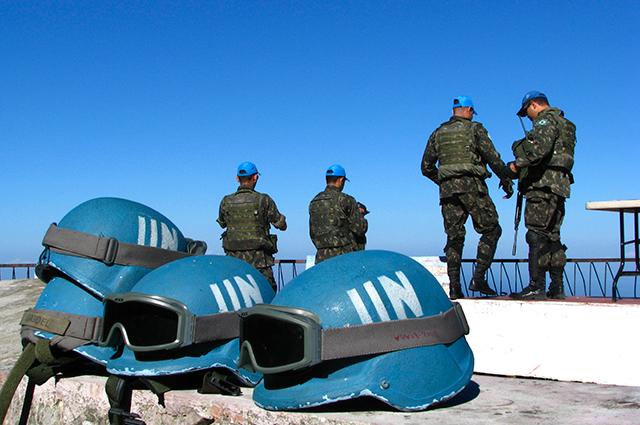
Special Representative of the OSCE Chairperson-in-Office in Ukraine and in the Tripartite Contact Group on Donbas, Ambassador Martin Sajdik, revealed a new plan to resolve the situation in Donbas, involving joint participation of the OSCE and the United Nations.
In an interview with the Austrian newspaper Kleine Zeitung, Sajdik says that after the plan on peaceful settlement in Donbas was presented at an OSCE ministerial in Milan in December 2018, there came no official response.
“For many years we have seen what wasn't entirely clear in the Minsk agreements. A mandatory part is that to implement the central element, to hold local elections, external assistance is required. We concluded that this could only be the UN,” said Sajdik.
The ambassador noted that the OSCE is able to assess elections, not to conduct them.
In addition, the OSCE special representative says, a security plane is also to be taken into account.
Read alsoUkraine's Foreign Ministry not to register Russia observers for upcoming elections
Sajdik believes it is important to engage the UN, since the observers of the OSCE Special Monitoring Mission cannot address these issues alone.
He clarified that it is about the UN-OSCE interaction under the joint leadership of a so-called special representative.
"This applies both to the military component and the police component on the part of the UN and continues to be valid for the OSCE monitoring mission already in place," said Sajdik.
He added that also, the European Union plans to organize a recovery and reconstruction agency using the example of the one already operating in the Balkans.
The agency will cooperate with, but remain beyond the leadership of the UN and OSCE. It is planned that the agency's operations will stretch throughout all districts of Donetsk and Luhansk regions, Sajdik stressed.
Also, the OSCE Special Representative noted the need for a new agreement to be signed by the Normandy Four leaders.
Read alsoKlimkin: Concept of UN-OSCE peacekeepers in Donbas still under discussion
"This is a central element. We need an agreement that will truly have political and legal weight. The Minsk agreements have not been ratified by either the Russian or Ukrainian parliaments. This, of course, is an issue. Our idea is to have this political weight, which everyone will then adhere to in order to implement the document, which has also been approved by parliaments," Sajdik said.
At the same time, he reported on the proposal to set up in Donbas a transitional UN administration, which, among other things, would guarantee that the rights of the local population are observed, not restricted. This will also include the issue of amnesty.
Also, he noted that "the Minsk agreements clearly stipulate that representatives of the so-called special areas of Donetsk and Luhansk [regions] will participate and be heard in the [settlement] process."
"We assume that this should be the case even after a comprehensive agreement is approved,” Sajdik added.
However, the envoy did not elaborate on the exact number of personnel that would be required for the joint UN-OSCE mission.

